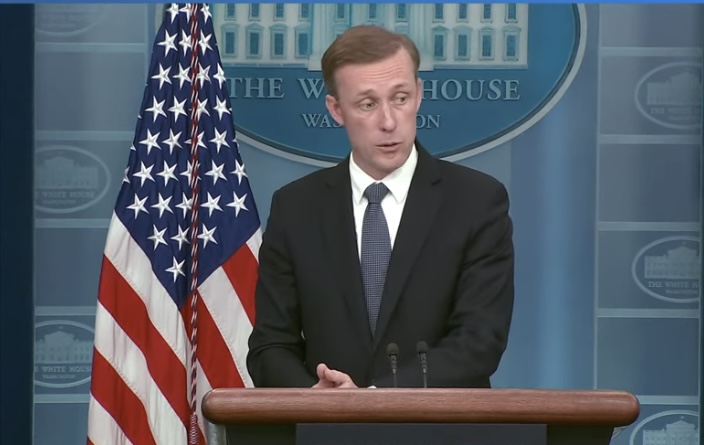WASHINGTON (AP) — The Biden administration will provide cluster munitions to Ukraine, national security adviser Jake Sullivan said Friday, vowing the U.S. will not leave Ukraine defenseless and asserting that Kyiv has promised to use the controversial bombs carefully.
The decision comes on the eve of the NATO summit in Lithuania, where President Joe Biden is likely to face questions from allies on why the U.S. would send a weapon into Ukraine that more than two-thirds of alliance members have banned because it has a track record for causing many civilian casualties. And it was met with divided reactions from Congress, as some Democrats criticized the plan while some Republicans backed it.https://d-19275921462631108229.ampproject.net/2306202201000/frame.html
The munitions — which are bombs that open in the air and release scores of smaller bomblets — are seen by the U.S. as a way to get Kyiv critically needed ammunition to help bolster its offensive and push through Russian front lines. U.S. leaders debated the thorny issue for months, before Biden made the final decision this week.
Sullivan defended the decision, saying the U.S. will send a version of the munition that has a reduced “dud rate,” meaning fewer of the smaller bomblets fail to explode. The unexploded rounds, which often litter battlefields and populated civilian areas, cause unintended deaths. U.S. officials have said the U.S. will provide thousands of the rounds, but provided no specific numbers.
“We recognize the cluster munitions create a risk of civilian harm from unexploded ordnance,” he told a White House briefing. “This is why we’ve deferred the decision for as long as we could. But there is also a massive risk of civilian harm if Russian troops and tanks roll over Ukrainian positions and take more Ukrainian territory and subjugate more Ukrainian civilians, because Ukraine does not have enough artillery. That is intolerable to us.”
But Marta Hurtado, speaking for the U.N. human rights office, said Friday “the use of such munitions should stop immediately and not be used in any place.”
Colin Kahl, the under secretary of defense for policy, said the U.S. will give Ukraine the most modern cluster munitions that have far lower dud rates. He said the bombs have been tested five times between 1998 and 2020, and the U.S. is confident the rate of unexploded duds is below 2.35 percent. While he declined to say how many the U.S. will send now, he said the U.S. has “hundreds of thousands” of cluster munitions available for Ukraine at the low dud rate.
He said the key reason to provide the bombs is to keep Ukraine in the fight.
“Things are going a little slower than some had hoped,” Kahl said in a Pentagon briefing. “So this is to make sure that the Ukrainians have the confidence that they have what they need. But frankly, also that the Russians know that the Ukrainians are going to stay in the game.”
Kahl said the Ukrainians have provided written assurances that they will not use the munitions in urban areas that are populated by civilians and that there will be a careful accounting of where they are employed.
Questioned at length about the decision, Sullivan said the U.S. consulted closely with allies before making the final decision, noting that even allies who have signed on to a ban of the bombs “have indicated, both privately and many of them publicly over the course of today, that they understand our decision.”
Allies “recognize the difference between Russia using its cluster munitions to attack Ukraine and Ukraine using cluster munitions to defend itself its citizens and its sovereign territory,” he said. The U.S. “will not leave Ukraine defenseless at any point in this conflict, period.”
Still, U.S. reaction was mixed. Rep. Betty McCollum, D-Minn., called the decision “unnecessary and a terrible mistake.” And Rep. Jim McGovern, D-Mass., said the civilian risk lingers “often long after a conflict is over.” Meanwhile, Sen. Tom Cotton, R-Arkansas, backed the move, saying Ukraine needs access to weapons Russia already is using.







